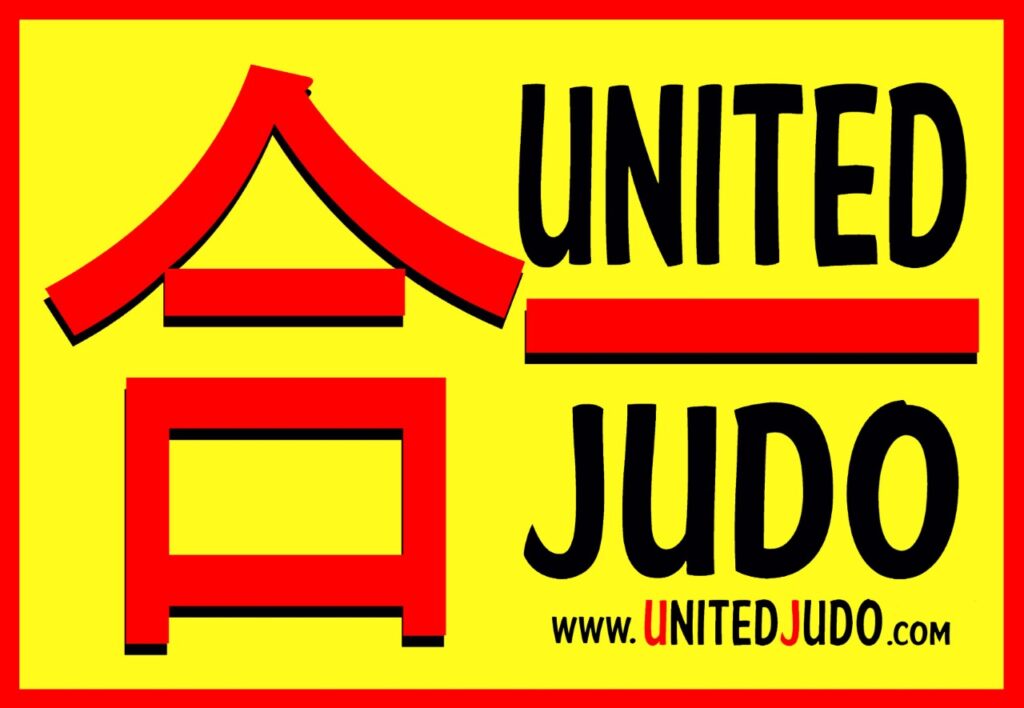What is Judo?
Step into the realm of Judo with our “Understanding Judo” webpage – an entry point into the intricate world of this martial art that transcends mere physical combat. Judo, translated as the “gentle way,” goes beyond techniques; it’s a comprehensive discipline encompassing the physical, mental, and ethical facets of life. This page serves as your guide to unraveling the core of Judo – its storied history, fundamental principles, and the transformative influence it exerts on its practitioners. Whether you’re new to Judo or a seasoned enthusiast, join us on this exploration into the profound essence of Judo. Together, let’s navigate the depths of what defines Judo, revealing its unique ability to shape character, instill resilience, and foster a spirit of mutual benefit. Welcome to the world of Judo – where strength converges with wisdom, and the journey itself is as significant as the destination.
Lets dive straight into it....
Judo, the “gentle way,” is far more than a martial art; it is a profound philosophy, a way of life that extends beyond the confines of the dojo. Developed in Japan in the late 19th century by Jigoro Kano, Judo has evolved into a disciplined practice that combines physical prowess with ethical principles. In this blog, we’ll embark on a journey to explore what Judo truly is – its history, guiding philosophy, core principles, and the transformative impact it has on those who embrace its teachings.
The Origin and Evolution of Judo:
Judo traces its roots to traditional Japanese martial arts, where it underwent a transformation under the visionary guidance of Jigoro Kano. Kano sought to create a system that not only emphasized effective self-defense techniques but also embodied a set of principles promoting personal and social development.
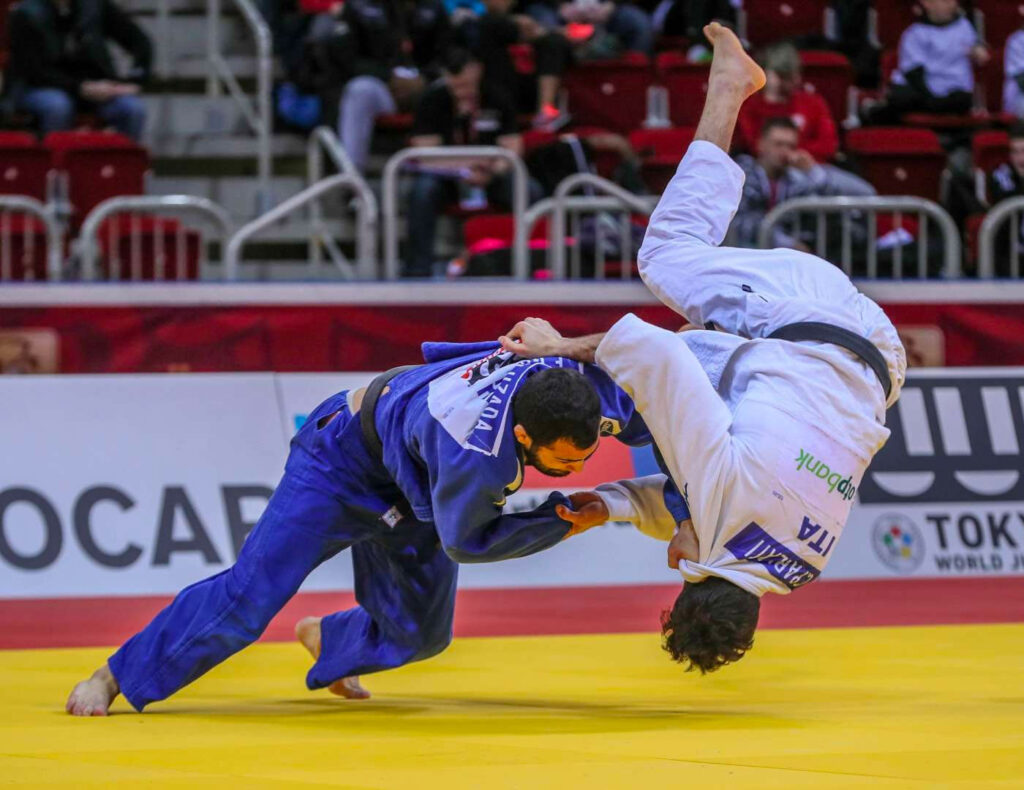
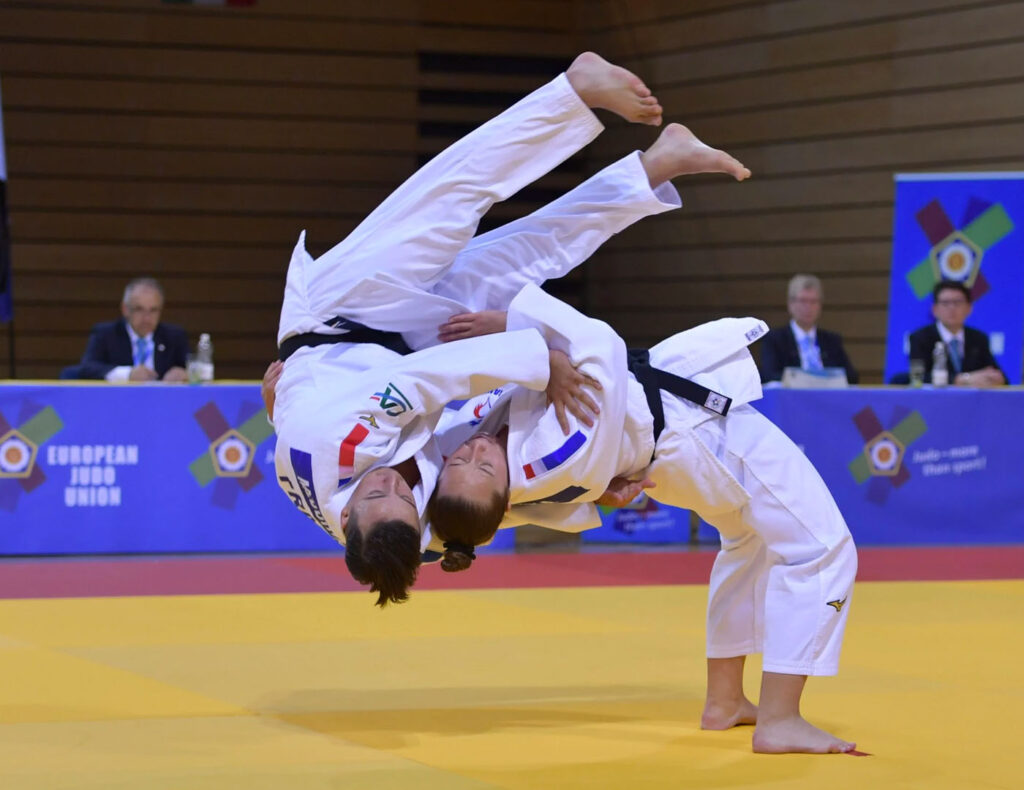
Philosophy of Harmony and Mutual Benefit:
At the heart of Judo lies the philosophy of using an opponent’s energy and balance to achieve victory. The concept of “ju” or gentleness is central, encouraging practitioners to blend with and adapt to opposing forces rather than opposing them head-on. Judo’s emphasis on mutual benefit extends beyond the mat, fostering respect, cooperation, and harmony in daily life.
Physical and Mental Development:
Judo is a physically demanding practice that develops strength, flexibility, and agility. However, its impact goes beyond the physical realm. Through rigorous training, practitioners cultivate mental resilience, focus, and discipline. The mental fortitude developed on the mat becomes a valuable asset in facing life’s challenges.
Find out more on physical and mental health within judo – read more.
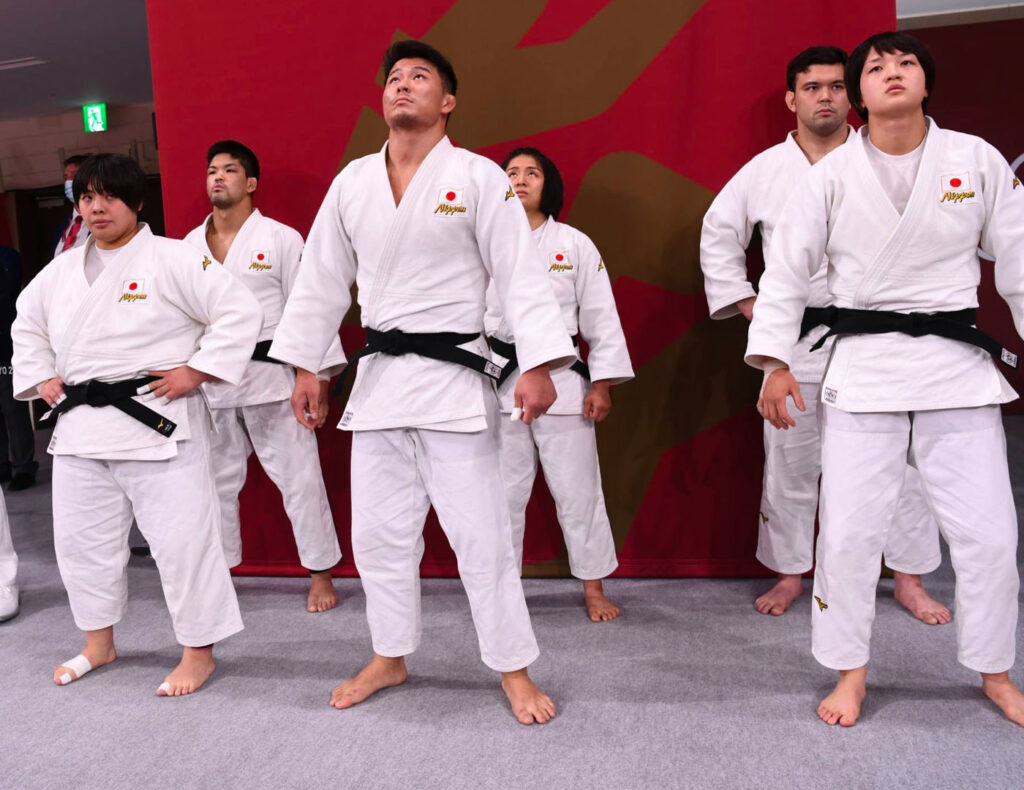
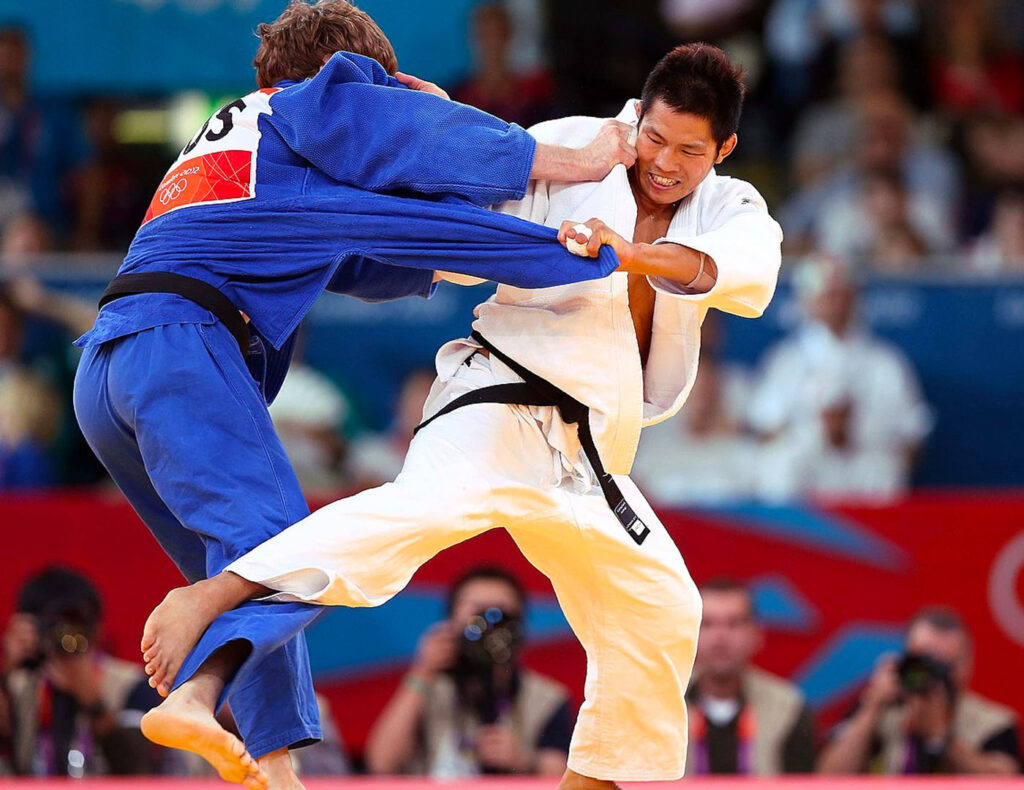
Technique and Kata:
Judo is renowned for its dynamic throws, ground control techniques, and submission holds. These techniques are not merely a means of self-defense but also tools for personal growth. Kata, a formalized series of movements, serves as a way to practice and refine techniques, embodying the essence of Judo in a choreographed sequence.
Find out technique guides on YouTube.
Judo as a lifestyle:
Beyond the training sessions, Judo becomes a way of life for its practitioners. The principles of respect, humility, and mutual support extend into daily interactions, shaping character and fostering a strong sense of community among judoka worldwide.
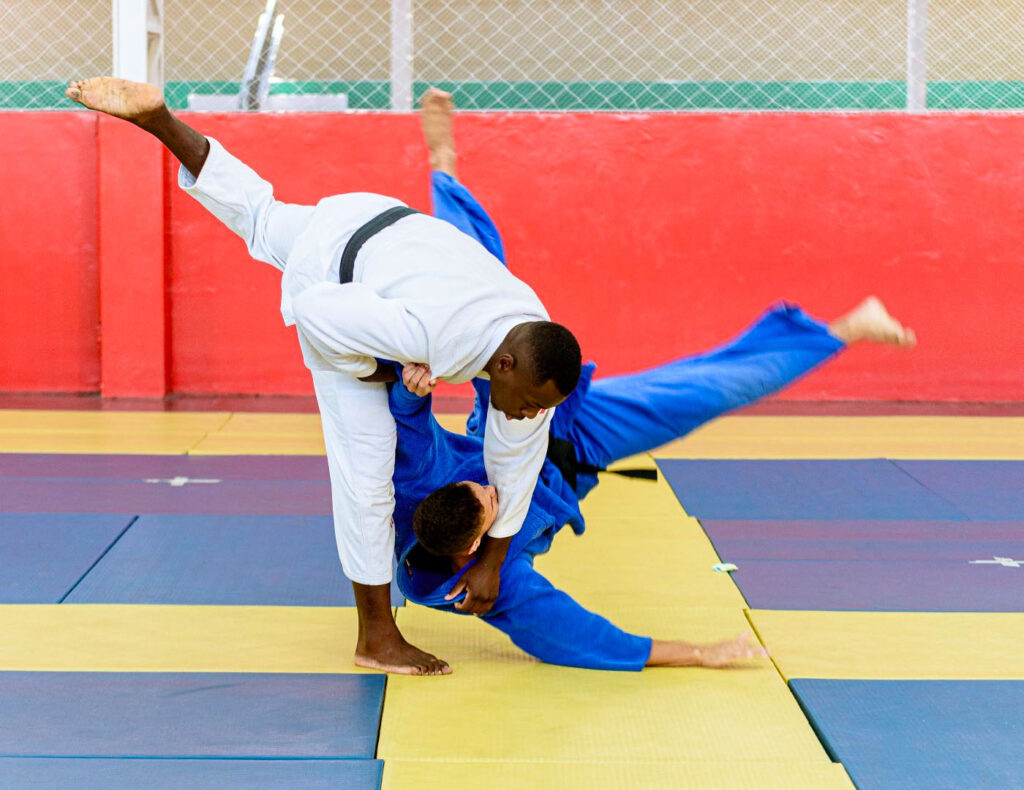
In essence, Judo is a multifaceted discipline that marries physical prowess with a profound philosophy of harmony and mutual benefit. It is a journey of self-discovery, personal growth, and community building. Whether you’re a curious newcomer or a seasoned practitioner, the world of Judo offers a rich tapestry of experiences that extend far beyond the mat. As we navigate the intricacies of throws, holds, and philosophy, we uncover the true essence of what Judo is – a timeless and transformative art that transcends the boundaries of the dojo.
Judo Frequently Asked Questions (FAQs)
No you do not punch nor kick in Judo. Judo scoring is from either a throw with control, hold down, armlock or strangle submission. You can also win by penalties and disqualifications of the opponent.
Karate primarily focuses on striking techniques, kicks, and punches from a distance, emphasising self-defence through precise and powerful movements. In contrast, Judo specialises in throws, takedowns, and ground control, prioritising the use of an opponent’s energy and balance for effective techniques in close-quarters combat.
Aikido emphasises redirecting an opponent’s energy and blending with their movements to neutralise attacks, often using joint locks and throws. In contrast, Judo focuses on throws, takedowns, and ground control, with an emphasis on using an opponent’s balance and energy to execute efficient techniques.
Judo is a modern Japanese martial art that evolved from Jujitsu, emphasising throws, takedowns, and groundwork, with an emphasis on mutual benefit and efficiency of movement. Jujitsu, the predecessor to Judo, encompasses a broader range of self-defence techniques, including joint locks, strikes, and grappling, often emphasising practical applications in various combat scenarios.
Judo is a Japanese martial art that focuses on throws, takedowns, and groundwork, emphasising using an opponent’s energy and balance. Taekwondo is a Korean martial art known for its dynamic kicks, punches, and strikes, with a strong emphasis on high, fast kicks and agility.
Judo is a Japanese martial art that specialises in throws, takedowns, and ground control, emphasising efficiency and using an opponent’s energy. Kung Fu, a diverse range of Chinese martial arts, encompasses various styles with a focus on striking techniques, kicks, and hand-to-hand combat, emphasising flexibility and adaptability in fighting scenarios.
Like any physical activity, Judo carries inherent risks of injury, especially when practiced without proper supervision or adherence to safety guidelines. However, with proper training, supervision, and adherence to established rules, Judo can be a relatively safe martial art that promotes discipline, fitness, and controlled techniques.
